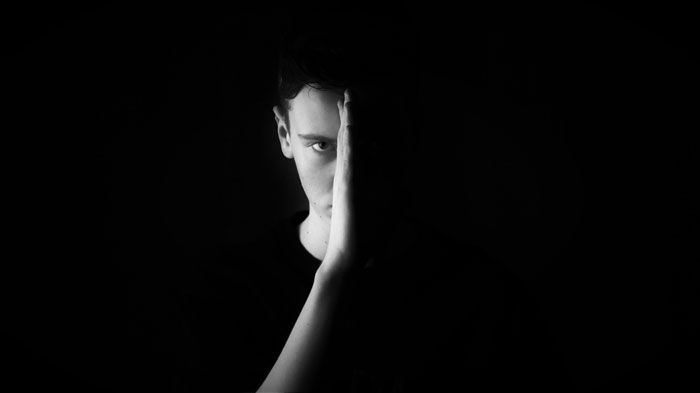One of the gravest mental conditions there exists is schizophrenia – those who are affected by it are given to extreme misinterpretations of reality. It manifests itself in a mixture of delusions and hallucinations linked to faulty thinking; such people are unable to function normally and often end up disabled. Developing schizophrenia means that sufferers will have to undergo treatment all their lives. It is always very important to diagnose it as soon as possible and address symptoms while they are not so severe and can be controlled more easily.

Yet it is easier said than done: at its earlier stages, schizophrenia is elusive and can be regarded as a normal state for adolescents and younger citizens. The symptoms need more evidence to allow for a definite diagnosis.
Belated Development in Young Kids
If schizophrenia has already settled in, little children display delayed development in many ways: their movements, speech, and socializing are below par. They don’t start to walk and talk in due time, their emotional expressions are poorer than it could be expected.
It’s not common to find schizophrenia in pre-teens and younger kids, yet sometimes it happens. When it does take place, young kids show the following signs:
- Belated development of speech
- Belated crawling, or uncommon crawling
- Inability to walk for a long time
- Odd movements, including shaking, waddling, sweeping motions with arms
Schooling Adds Issues
As a schoolchild, a kid with incipient schizophrenia tries to avoid their classmates, stays away from people (even from family members), and refuses to attend classes. Even if they showed excellent results, kids could begin to feign sickness, cut lessons and finally ignore school altogether.
As they grow into late teens, adolescent schizophrenics are unable to keep up with peers in learning and other activities; they also show a marked decrease of social activity.
Scarcity of Movements
Schizophrenia is often accompanied by various movement disorders – their movements are usually badly coordinated, and they may have catatonia. The latter condition means they tend to move incredibly little or plant themselves in queer postures, which they maintain for long periods of time.
They Are Always Deeply Suspicious

Afflicted adolescents are apt to regard others with suspicion: they may believe their pals are out to bring them down; even total strangers may discuss them and wish them ill. They can tell they hear their unspoken thoughts.
A definite schizophrenia symptom is when they feel certain that people or things really belong to an imaginary master –this is known as the “possession” delusion.
Early stages of schizophrenia frequently bring about notions of personal grandeur – kids and young adults believe they are renowned actors or are endowed with superhuman powers.
They Feel Detached from Themselves
Early on, this mental condition is characterized by what can be termed as detachment. Individuals don’t feel in touch with their true selves; whatever they do, they perform their daily tasks automatically and fail to see any benefit or pleasure from it (derealization). People around may not notice it at all, or it may seem to them that their pal must be daydreaming and detached from what is going on.
They Often Make Social Blunders
A person with schizophrenia can come up to you uncomfortably closely when you talk; they may crack jokes that sound foolish to others and broach sexually inappropriate or explicit topics with friends or even strangers. All these behaviors may be indicative of schizophrenia beginning to settle in.
Uncommon Facial Expressions

One of the more common schizophrenia signs is a facial expression that is given to odd alterations. Usually, it means that a person displays a very limited range of expressions – a condition known as blunt affect (sometimes flattened affect). This facial blunt affect doesn’t have anything to do with a depressive state, it doesn’t involve sadness, anxiety or other symptoms of depression.
When limited expressions assert themselves, they may be accompanied by limited articulation, dulling of vocal intonation, and fewer gestures during conversations.
Sudden Changes in Mood
Schizophrenia-afflicted individuals frequently display abrupt mood swings and at a moment’s notice, can pass from a state of exhilaration to a bout of deep depression. Such mood shifts can be caused by a notion that enemies are coming up, so it is necessary to take measures to escape – or a sudden feeling of being weighed down by burdening circumstances.
A Sense of Isolation
Since a person with incipient schizophrenia grows more and more inclined to disassociate himself from others, the desire to isolate oneself can be regarded as a prodrome to a serious development of the condition.
Afflicted people may believe themselves to be vulnerable. That’s why staying alone seems to them to be the best bet. Some of them have no feeling of belonging with other people, so they also prefer loneliness.
Besieged by Hallucinations

Hallucinations are persistent in schizophrenia; at the beginning, they may be transient. For instance, a schoolboy can suddenly hear voices out of nowhere. When they actually hear people speaking, they may develop a delusion that the conversation runs on about them and is of a threatening nature.
Many registered hallucinations relate to hearing and seeing things that don’t really exist; many of them are linked with paranoia or the persecution mania. These delusions are generally permanent or recurring and form the greatest part of an afflicted individual’s conversation.
Faulty Illogical Thinking
A schizophrenic commonly finds it hard to digest incoming information, follow it to logical conclusions and sort out material. They will also behave erratically and give inconsistent responses.
Following Hygiene Becomes Problematic
With the development of schizophrenia, matters of personal appearance and hygiene lose their importance very quickly. People stop caring about washing and changing their clothes even though they may look seedy.
Speech Ability Gets Corrupted
As schizophrenia grows on, the person loses the thread of a conversation easily and is at a loss about what they are going to say. Schoolchildren find it difficult to write a logical and grammatically correct essay – words just tumble out haphazardly.
They Turn to Alcohol and Drugs

In an attempt to lighten their burden, schizophrenics often go for drinking or using drugs. Even if they understand that they are not doing themselves any good, such people grow to rely on substances to take them through the day.
Their Relationships Get Derailed
Playing their part in a relationship is what people with schizophrenia are definitely unable to do. Some of them indulge in erratic behavior which makes it uncomfortable to stay around them; others suspect their relatives and friends and stay away from them; many afflicted people pick quarrels easily. All these ruin their existing relationships and make recluses of them.
Getting Distracted by Delusions
When engrossed in a conversation, these kinds of people can get distracted by some hallucinatory phenomenon all of a sudden. They may concentrate on something as if they weren’t sure exactly what they are seeing or make as if they were listening to someone else addressing them. They seem to have been approached by somebody or scared by something. Some of them interrupt the talk to ask if the other fellow heard or saw something as well.
Should it happen that you have observed these symptoms, they require serious consideration; it’s likely measures should be taken to look after the person involved and treatment has to be administered.










